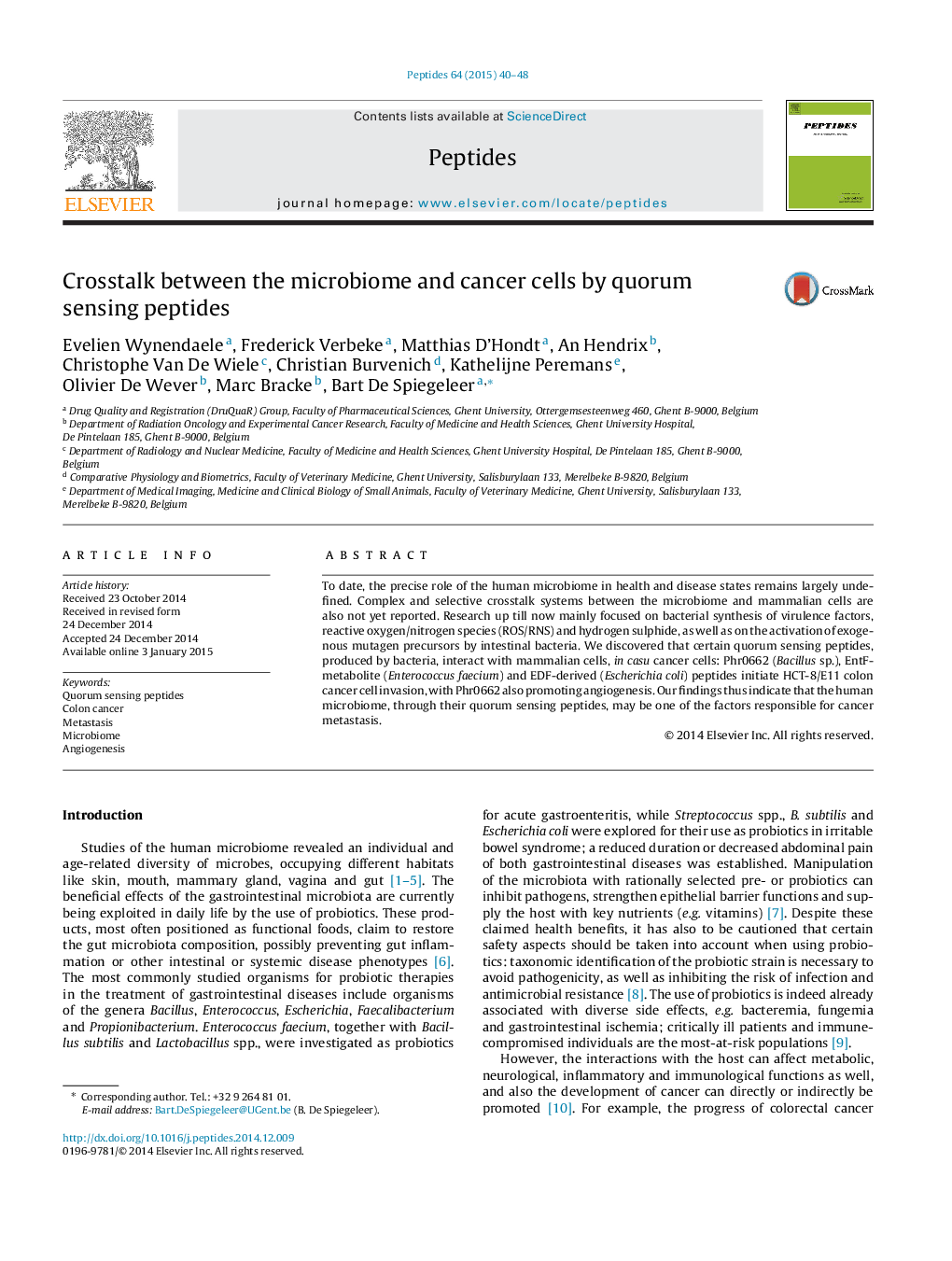| Article ID | Journal | Published Year | Pages | File Type |
|---|---|---|---|---|
| 2005967 | Peptides | 2015 | 9 Pages |
•Some quorum sensing peptides promote colon cancer cell invasion and angiogenesis.•Quorum sensing peptide Phr0662 influences tumor progression by EGFR targeting.•Cytokine profiles confirm the peptide's stimulatory effect on metastasis in vitro.•The microbiome–mammals crosstalk may explain the microbiome's effect on health.
To date, the precise role of the human microbiome in health and disease states remains largely undefined. Complex and selective crosstalk systems between the microbiome and mammalian cells are also not yet reported. Research up till now mainly focused on bacterial synthesis of virulence factors, reactive oxygen/nitrogen species (ROS/RNS) and hydrogen sulphide, as well as on the activation of exogenous mutagen precursors by intestinal bacteria. We discovered that certain quorum sensing peptides, produced by bacteria, interact with mammalian cells, in casu cancer cells: Phr0662 (Bacillus sp.), EntF-metabolite (Enterococcus faecium) and EDF-derived (Escherichia coli) peptides initiate HCT-8/E11 colon cancer cell invasion, with Phr0662 also promoting angiogenesis. Our findings thus indicate that the human microbiome, through their quorum sensing peptides, may be one of the factors responsible for cancer metastasis.
